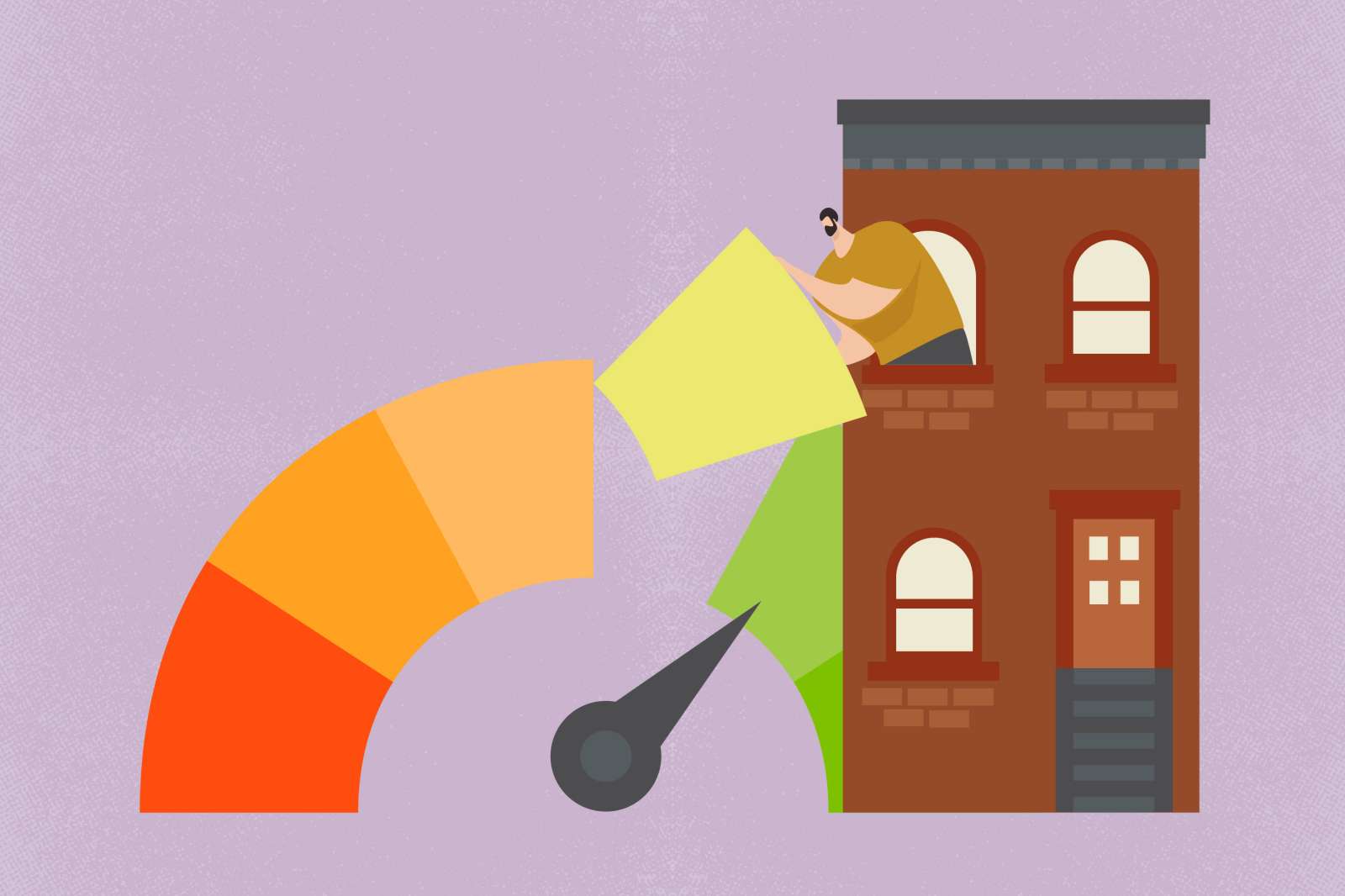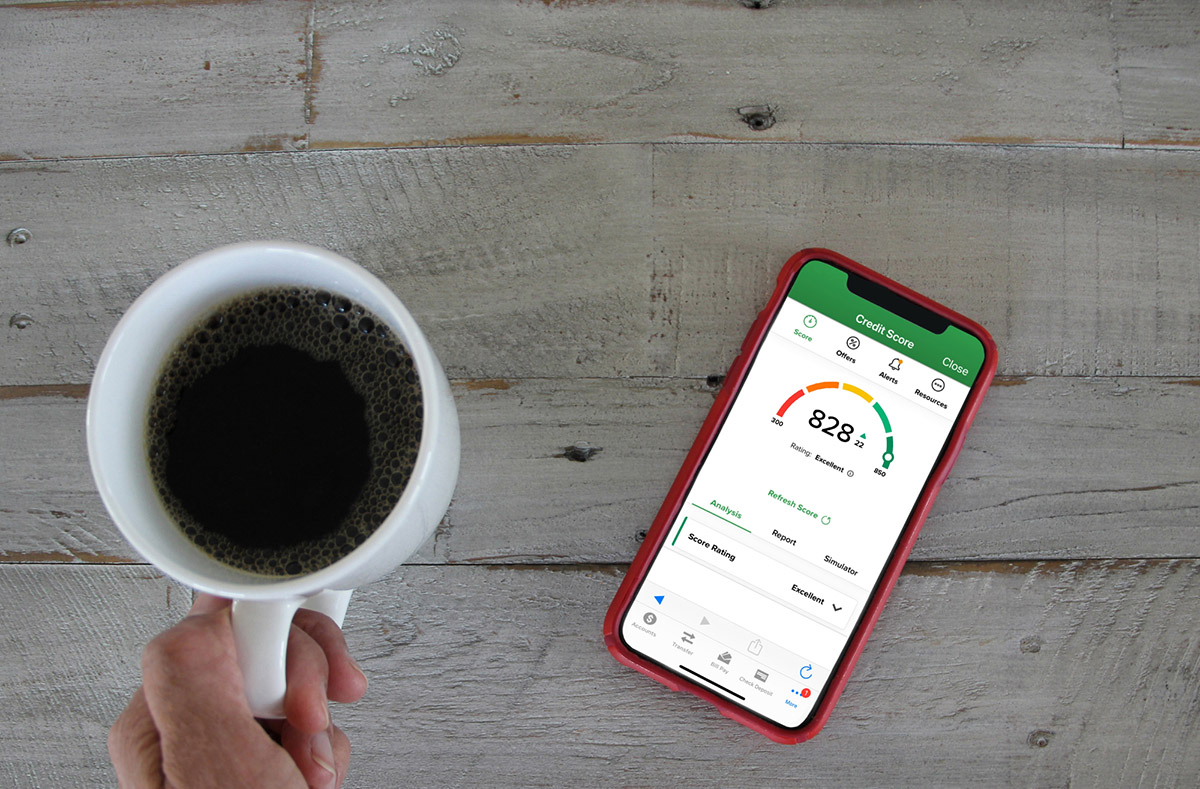

Finance
How Do I Add Utilities To My Credit Report
Modified: February 21, 2024
Learn how to add utilities to your credit report and improve your financial standing. Get expert tips and advice on managing your finances and building credit.
(Many of the links in this article redirect to a specific reviewed product. Your purchase of these products through affiliate links helps to generate commission for LiveWell, at no extra cost. Learn more)
Table of Contents
- Introduction
- What Are Utilities on a Credit Report?
- Why Should You Add Utilities to Your Credit Report?
- How to Add Utilities to Your Credit Report
- Step 1: Gather Your Utility Bills
- Step 2: Contact the Credit Reporting Agencies
- Step 3: Provide Proof of Utility Payments
- Step 4: Follow Up and Review Your Credit Report
- Conclusion
Introduction
Having a good credit score is crucial for various financial endeavors, such as securing a mortgage, obtaining a loan, or even renting an apartment. The more positive information you have on your credit report, the better your chances of achieving a higher credit score. While credit cards and loans are commonly reported on credit files, many people are unaware that they can also add utilities to their credit reports.
When you add utilities to your credit report, it means that your timely payments for essential services like electricity, water, gas, or even internet are included in your credit history. This additional information can have a positive impact on your credit profile and boost your creditworthiness.
Adding utilities to your credit report is especially beneficial if you have a limited credit history or are trying to rebuild your credit after encountering financial difficulties. It provides an opportunity to showcase your responsible payment behavior and can help demonstrate your reliability to potential lenders.
In this article, we will explore the importance of adding utilities to your credit report and guide you through the steps to do so. By the end, you will have a clear understanding of how this process works and how it can potentially improve your credit standing.
What Are Utilities on a Credit Report?
Utilities on a credit report refer to the inclusion of your payment history for essential services such as electricity, water, gas, internet, and other recurring bills on your credit file. These services are considered utilities because they are necessary for daily living and are typically provided by utility companies or service providers.
Traditionally, credit reports primarily consisted of information related to credit cards, loans, and other forms of debt. However, the credit reporting industry has evolved, and now utilities can also be included, providing a more comprehensive view of an individual’s financial responsibilities and payment behavior.
Adding utilities to your credit report allows these payment histories to be factored into your credit score calculation. This inclusion provides potential lenders and creditors with a more accurate assessment of your creditworthiness and financial stability.
It is important to note that not all utility payments are automatically reported to the credit bureaus. Utility companies are not required to report this information, so it is up to the individual to take the initiative to add utilities to their credit report.
By including these payments, you can showcase your ability to manage and prioritize your financial obligations, which can have a positive impact on your credit score. Additionally, for individuals with limited credit history or a thin credit file, adding utilities can help establish a positive payment history and build a stronger credit profile.
Now that we understand what utilities on a credit report are and why they are important, let’s explore the benefits of adding utilities to your credit report in more detail.
Why Should You Add Utilities to Your Credit Report?
Adding utilities to your credit report can have several significant advantages when it comes to improving your overall creditworthiness and financial standing. Here are a few key reasons why you should consider adding utilities to your credit report:
- Enhancing your credit history: Utilities, such as electricity and water bills, provide an additional layer of payment history that can strengthen your credit profile. Including these payments in your credit report helps paint a more complete picture of your financial responsibility and demonstrates your ability to consistently make on-time payments.
- Building credit for those with limited history: If you have a limited credit history or are new to credit, adding utilities to your credit report can be a great way to start building a positive credit record. Timely payments for utilities over time can establish a solid foundation and contribute to a stronger credit score, making it easier for you to qualify for future credit products.
- Showcasing responsible financial behavior: Adding utilities to your credit report can demonstrate to lenders and creditors that you are reliable and capable of managing various financial obligations. Consistent, on-time utility payments can indicate that you are responsible with your finances, which may increase your chances of getting approved for loans and credit cards with favorable terms.
- Improving your credit mix: Credit scoring models take into account the diversity of your credit portfolio. By adding utilities to your credit report, you diversify the types of accounts reported, which can positively impact your credit score. A healthy credit mix signals to lenders that you can handle various types of credit responsibly.
- Rebuilding credit after financial difficulties: If you have experienced financial challenges in the past and are working towards rebuilding your credit, adding utilities to your credit report can be a valuable strategy. By consistently paying these bills on time, you can gradually rebuild your creditworthiness and demonstrate a commitment to financial responsibility.
Adding utilities to your credit report is a proactive step toward improving your creditworthiness and expanding your credit history. It can provide lenders with a more well-rounded view of your financial behavior and ultimately increase your chances of getting approved for credit in the future.
Now that we understand the benefits of adding utilities to your credit report, let’s explore how you can go about doing so.
How to Add Utilities to Your Credit Report
If you want to add utilities to your credit report, follow these steps to ensure that your payment history is included in your credit file:
- Step 1: Gather Your Utility Bills
- Step 2: Contact the Credit Reporting Agencies
- Step 3: Provide Proof of Utility Payments
- Step 4: Follow Up and Review Your Credit Report
The first step is to collect your utility bills from the past several months. This will serve as proof of your payment history when you contact the credit reporting agencies.
Reach out to the major credit reporting agencies – Equifax, Experian, and TransUnion. You can either call them or visit their websites to inquire about adding utilities to your credit report. They will guide you through the specific process and provide you with the necessary instructions.
Once you have contacted the credit reporting agencies, they will likely request proof of your utility payments. This can include copies of your utility bills or statements that clearly show your name, address, and payment history. Make sure to provide accurate and up-to-date documentation.
After submitting your proof of utility payments, it is important to follow up with the credit reporting agencies to ensure that the information has been added to your credit report. It may take some time for the updates to reflect in your credit file, so be patient. Once the changes have been made, review your credit report to confirm that the utilities are now included.
Keep in mind that not all utility companies report payment information to the credit bureaus. In some cases, you may need to work directly with the utility provider to request that they report your payment history. Contact your utility company and inquire if they have a process in place for reporting payments to the credit bureaus. If they do, follow their instructions to have your utility payments added to your credit report.
By following these steps and ensuring that your utility payments are recorded on your credit report, you can harness the potential benefits of this additional information and enhance your creditworthiness.
Now let’s wrap up the article and summarize the importance of adding utilities to your credit report.
Step 1: Gather Your Utility Bills
The first step in adding utilities to your credit report is to gather your utility bills from the past several months. This documentation will serve as proof of your payment history when contacting the credit reporting agencies.
Collecting your utility bills involves gathering invoices or statements from providers such as electricity, water, gas, and internet service. Make sure you have bills that cover a sufficient time period to demonstrate consistent payment behavior. Generally, having at least three to six months’ worth of bills is recommended.
When gathering your utility bills, pay attention to the following details:
- Ensure the bills include your name and address: Utility bills typically show the account holder’s name and the address where the service is provided. This information is necessary to link the utility payments to your credit report.
- Check for accurate payment information: Verify that the payment amounts, due dates, and payment statuses (e.g., paid in full, partial payment) are accurately reflected on each bill. Inconsistencies or discrepancies could hinder the process of adding utilities to your credit report.
- Organize the bills chronologically: Arrange the utility bills in chronological order, starting with the oldest and ending with the most recent. This organization will help you easily present your payment history to the credit reporting agencies when requested.
- Keep copies of the bills for your records: Make copies or scan the utility bills before submitting them to the credit reporting agencies. This ensures that you have backup documentation in case any issues arise or if you need to reference the bills in the future.
By gathering your utility bills, you are preparing the necessary evidence of your payment history for utilities. This step sets the foundation for successfully adding utilities to your credit report and showcasing your responsible payment behavior to potential lenders and creditors.
Now that you have taken the first step in the process, let’s move on to the next step: contacting the credit reporting agencies to inquire about adding utilities to your credit report.
Step 2: Contact the Credit Reporting Agencies
After gathering your utility bills, the next step in adding utilities to your credit report is to contact the major credit reporting agencies – Equifax, Experian, and TransUnion. It is essential to reach out to these agencies to inquire about the process and requirements for adding utilities to your credit file.
There are several ways you can contact the credit reporting agencies:
- Phone: Look up the contact numbers for Equifax, Experian, and TransUnion on their respective websites. Call their customer service lines and ask to speak with a representative who can assist you with adding utilities to your credit report. Be prepared to provide any required identification or account information when requested.
- Online: Visit the websites of the credit reporting agencies and navigate to the appropriate section where you can make inquiries or request assistance. Look for information related to adding utilities to your credit report or contact options such as live chat or email. Follow the instructions provided and provide any necessary details or documentation as requested.
When contacting the credit reporting agencies, make sure to ask specific questions related to adding utilities to your credit report. Some inquiries you may want to make include:
- What is the process for adding utilities to my credit report?
- What documentation or proof of payment do you require?
- Are there any specific guidelines or formatting requirements for submitting utility bills?
- Is there a fee associated with adding utilities to my credit report?
- How long does the process typically take?
Be sure to take note of any instructions or information provided by the credit reporting agencies during your conversation or online interaction. This will help you navigate the subsequent steps more effectively.
Remember, each credit reporting agency may have slightly different procedures or requirements, so it is important to contact all three to ensure your utilities are added to each of your credit reports. Following the guidelines provided by the agencies will help ensure a smooth process.
Now that you have contacted the credit reporting agencies, let’s move on to the next step: providing proof of your utility payments.
Step 3: Provide Proof of Utility Payments
Once you have contacted the credit reporting agencies and inquired about adding utilities to your credit report, the next step is to provide proof of your utility payments. This documentation serves as evidence of your responsible payment history and validates your request to include utilities in your credit file.
The specific proof required may vary depending on the credit reporting agency’s guidelines. Generally, you will need to submit copies of your utility bills or statements that clearly show your name, address, and payment history. Here are some tips to consider when providing proof of utility payments:
- Choose recent and consecutive bills: Include utility bills from the past several months to demonstrate a consistent payment history. Select bills that are consecutive and cover a significant period to fully showcase your responsible payment behavior.
- Highlight relevant information: When submitting copies of your utility bills, make sure all essential details are clear and legible. Highlight the key information, such as your name, address, account number, payment due dates, and payment amounts. This makes it easier for the credit reporting agencies to verify your payment history.
- Keep original copies: It is always a good practice to keep the original copies of your utility bills before submitting them to the credit reporting agencies. This allows you to have a record of the bills for your own reference or in case any issues arise during the process.
- Follow specific formatting requirements: Some credit reporting agencies may have specific formatting requirements for submitting utility bills. Therefore, carefully review the instructions provided by the agencies and ensure that your copies meet the specified criteria. This will help expedite the verification process.
- Consider additional supporting documentation: In addition to utility bills, you may also include other supporting documentation that validates your payment history. For example, you could provide bank statements showing the payments made to the utility companies or confirmation receipts if available. These documents can further strengthen your case for including utilities in your credit report.
Once you have gathered the necessary proof of your utility payments, follow the instructions given by the credit reporting agencies to submit the documentation. Ensure that all required information is included and that the copies are clear and accurate.
After submitting the proof, it is essential to keep proper records and make note of the date and method of submission. This will allow you to follow up with the credit reporting agencies if needed and track the progress of adding utilities to your credit report.
With the proof of utility payments submitted, we can now move on to the final step: following up and reviewing your credit report to ensure the utilities are included.
Step 4: Follow Up and Review Your Credit Report
After providing proof of your utility payments to the credit reporting agencies, the final step is to follow up and review your credit report to ensure that the utilities have been successfully added. This step is crucial for verifying that your payment history is now included in your credit file.
Here are some actions you can take for effective follow-up and review:
- Follow up with the credit reporting agencies: Contact the credit reporting agencies a few weeks after submitting your proof of utility payments. Inquire about the progress of adding utilities to your credit report and confirm if any additional information or documentation is required. Keep a record of the conversations, including the date, time, and the name of the representative you spoke with.
- Monitor your credit reports: Regularly monitor your credit reports from Equifax, Experian, and TransUnion to ensure that the utilities are accurately included. You can access your credit reports for free once a year through annualcreditreport.com. Look for the presence of the utility accounts and verify that the payment history is being reported correctly.
- Dispute any inaccuracies: If you notice any discrepancies or errors in your credit report regarding the addition of utilities, promptly dispute them with the credit reporting agencies. Provide them with the necessary documentation to support your claim and request that the necessary corrections are made.
- Continue responsible financial habits: While adding utilities to your credit report can have positive impacts on your credit score, it’s important to continue practicing responsible financial habits. Pay your utility bills on time and in full to maintain a positive payment history. Consistency in paying all your bills improves your creditworthiness and strengthens your overall credit profile.
By following these steps and actively monitoring your credit report, you can ensure that the utilities are accurately recorded and contributing to your creditworthiness. Regularly reviewing your credit report also helps you stay informed about any changes or updates to your credit history.
Remember that adding utilities to your credit report does not guarantee an immediate boost in your credit score. It is just one component among many that lenders consider when assessing your creditworthiness. However, over time, consistently paying utilities on time and having a diverse credit history can have a positive impact on your overall credit profile.
Congratulations! You have now completed the process of adding utilities to your credit report. By taking this proactive step, you are strengthening your creditworthiness and improving your chances of accessing better credit opportunities in the future.
Now, let’s conclude the article by summarizing the importance of adding utilities to your credit report.
Conclusion
Adding utilities to your credit report can have a significant impact on your overall creditworthiness and financial standing. By including your payment history for essential services such as electricity, water, gas, and internet, you provide potential lenders and creditors with a more comprehensive view of your financial responsibility.
The process of adding utilities to your credit report involves gathering your utility bills, contacting the credit reporting agencies, providing proof of your utility payments, and following up to ensure the utilities are accurately included in your credit file. It is a proactive step that can benefit individuals with limited credit history, those aiming to rebuild credit after financial difficulties, and anyone seeking to showcase responsible financial behavior.
Adding utilities to your credit report can enhance your credit history, help you build credit from scratch, demonstrate responsible financial habits, improve your credit mix, and aid in rebuilding credit. However, it’s important to continue practicing responsible financial habits and paying all bills on time.
Remember to monitor your credit reports regularly and dispute any inaccuracies you may find. By staying proactive and vigilant, you can ensure that your credit reports accurately reflect your payment history, including the utilities you have added.
In conclusion, adding utilities to your credit report is a valuable strategy to strengthen your credit profile and increase your chances of obtaining favorable credit terms in the future. Take the necessary steps, follow up diligently, and enjoy the benefits of a robust credit history that includes your responsible utility payments.














